REGALO - the different society
Many people in need abroad apply for asylum in our country. We help in another manner - where the need is located !
The economic situation of the indigenous Andean population
The indígenas" living in the high valleys of the Andes mountains, at altitudes of between 2500 and 3500 meters, have little or no share in the prosperity of the state and live a hand-to-mouth, day-to-day existence. The men work mostly as day laborers and casual workers in distant towns or in the large plantations and earn a pittance. The women carry the main burden of the daily struggle to feed the family. The diet consists mainly of potatoes and beans, which are planted on the very steep slopes of the mountains. The extensive fertile plains are in the hands of the ruling class. The climate is savage; air currents rising from the Amazon basin across the eastern Cordilleras bring frequent heavy rain. In the high Andean valleys there are two seasons; a rainy summer and a dry and windy winter.
Who does REGALO support, and how ?

|
REGALO helps the indigenous population of an almost forgotten area of the Andes in Ecuador to attain at least some quality of life.
We ourselves cannot imagine what it is like to be without clean drinking water. These circumstances are responsible for the very high infant mortality rate. REGALO has constructed two drinking-water facilities in the Valley of Alao. We also pay for the training necessary for the indigenous population to operate and maintain the facility. This is the only way to ensure that self-help is assured for many years. We also endeavor to instil a sense of individual responsibility and to enhance the self-esteem of the villagers.
|

|
All of the manual work is carried out by the villagers under qualified supervision and with strong support from the women. We finance only the technical expertise and the material.
|

|
Children receive medical help, because the poor-quality drinking water causes rashes and the immune system is weakened to the extent that the slightest infection is fatal. They now receive medicines if needed and long-term health care.
|

|
REGALO also provides assistance in building up modest ecotourism. Because many villagers of working age are familiar with the local ecology, this step is intended to counteract the drift to a life of near-certain poverty in the towns. Low-key tourism will in turn bring more work to the village.
|

|
These remote villages are located at the entrance to the
Sangay National Park,
and REGALO considers that a combination of agriculture and ecotourism will provide a solid basis for existence. We are concentrating on ecotourism because we know that indigenous populations profit only marginally from large commercial tourism projects and only for a very short time. The existence of trekking facilities with bunk beds, cooking facilities and sanitary installations should provide the incentive for enthusiasts to explore the absolutely untouched natural beauty of the Sangay National Park. The villages of San Antonio and Llactapamba de Alao, which are receiving support, have very good trekking guides who are still prepared to carry enormous loads in return for a tip.
|

|
REGALO has purchased several llamas for this project. The animals are thriving and are already an integral part of village life. They are being trained to carry tourist baggage during trekking tours. Llamas also provide wool, milk and meat.
|

|
REGALO is trying to improve the situation of the women and to build up their self-confidence by building a community centre where they can weave, sew and chat together. The goal is to train good weavers and to sell the products.
The provision of support and training for the women by building the community centre and equipping it with weaving frames and sewing machines is a logical step in our philosophy of helping people to help themselves. REGALO also wants to provide instruction relating to hygiene, diet and family planning, using local Quicha-speaking teachers.
|
What has been achieved so far ?
|
2000
|
In the year 2000, several participants in a Spanish course co-operated to raise funds for the medical examination of the children, and for the Alao San Antonio drinking-water project.
Medical care provided for all 800 children in the above village and in the neighboring village of Llactapamba (infant mortality rate previously 70 %).
|
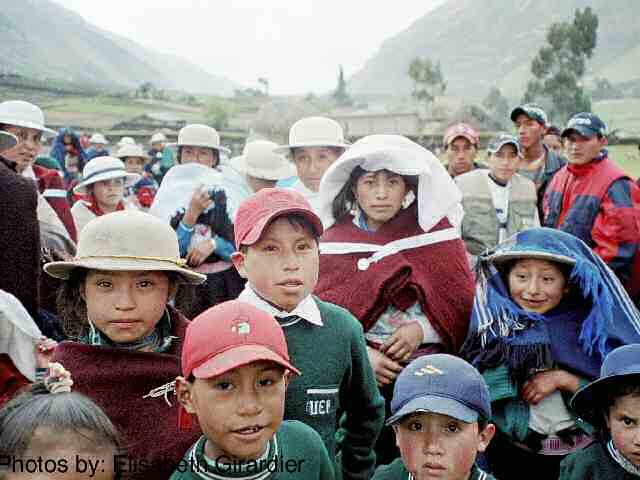
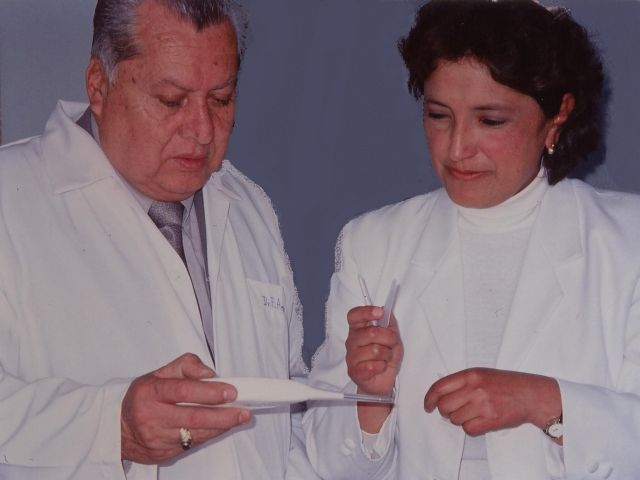
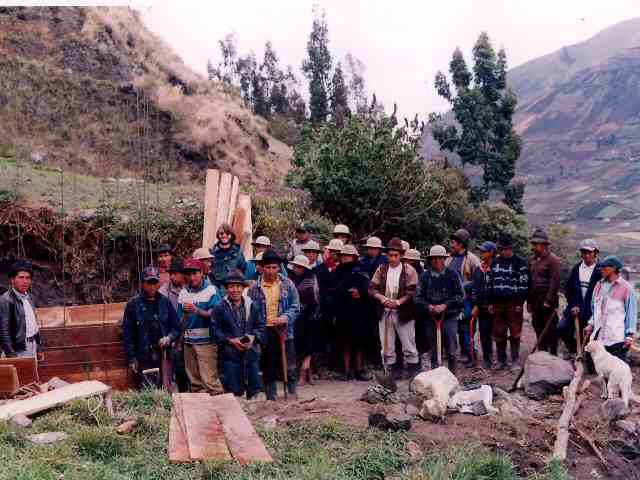
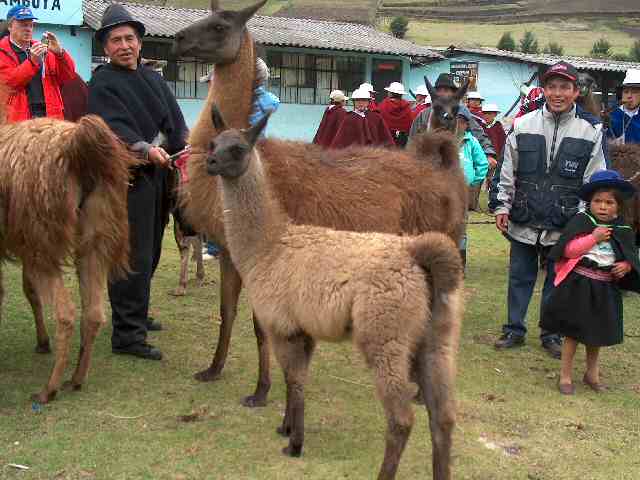
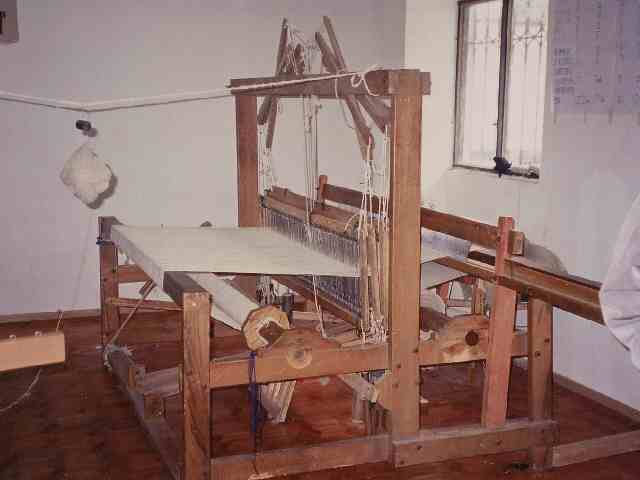
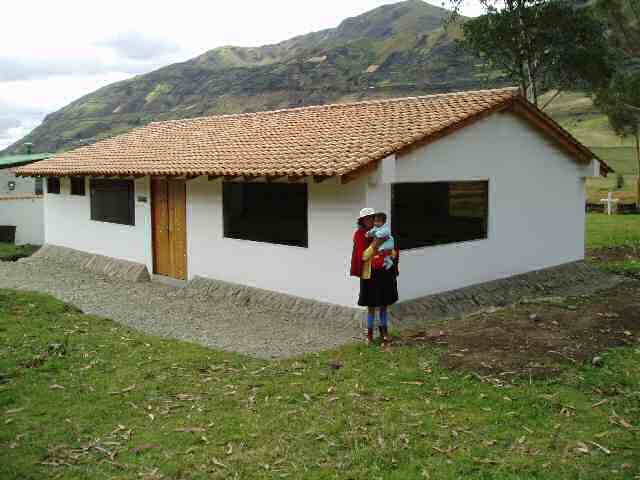
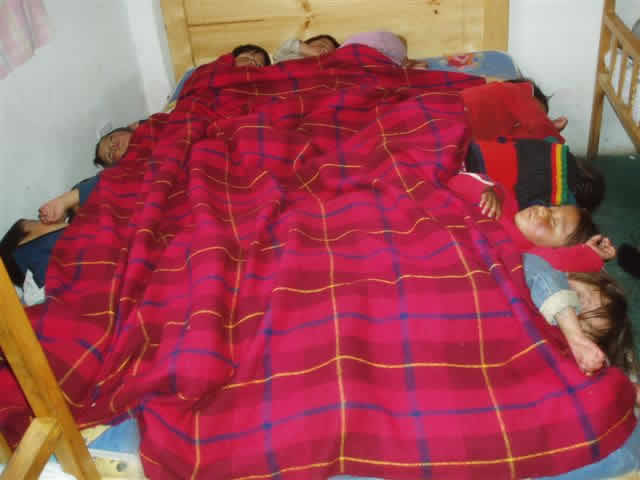
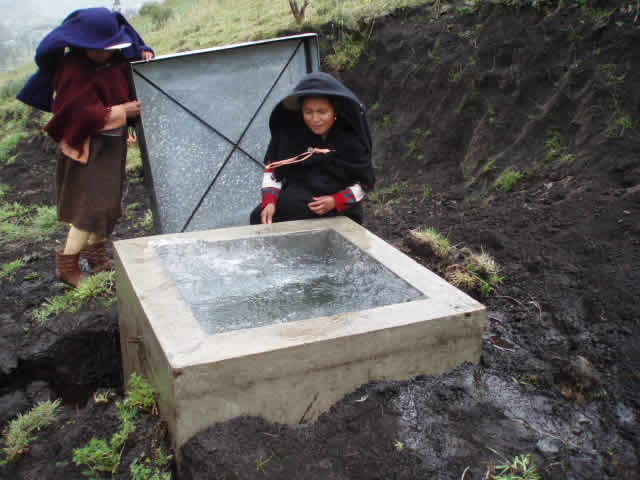
|
|
2001
|
Decision to support the construction of a drinking-water facility for the village of San Antonio de Alao. The aim of this project, and of the four reservoirs being constructed in association with it using the latest technology, is to limit damage to health, particularly among children.
|
|
2001 - 2002
|
Construction of the drinking-water facility under the direction of the hydraulic engineer Stefano Stefanelli together with a former co-worker. It was possible to provide the financial resources required by various means. These included the sale of a picture book for children and the support of many sponsors and donors. The project is 100% successful; skin rashes among children have virtually disappeared. The resulting gratitude and motivation among the indigenous population have been the key factor in deciding to provide further support for the village and its surrounding area.
|
|
2002 - 2004
|
Training of several villagers in the care of the drinking-water facility, including maintenance, cleaning, hygiene etc., all factors of great importance.
After this project had been successfully concluded, these course participants founded the REGALO Help for Self-Help in Ecuador movement at the end of December 2002. The movement commenced its work as from 1. January 2003.
Repeat medical examination of all 800 children from San Antonio de Alao and Llactapamba, and distribution of medicines where required.
Construction of a community centre for the women, where they can weave, sew and chat. It is planned to install one or two weaving frames of different sizes and two or three sewing machines. The long-term goal is the training of competent weavers who will be able to sell their products to tourists.
Provision of llamas for the beginning of ecotourism involving trekking in the nearby Sangay National Park. Llamas are also a source of wool, meat and milk.
|
|
2004
|
Dedication of the community centre, a building which will serve as an example to the entire region. It blends into the landscape, just as we imagined it would. Large windows, light, a small kitchen, WC, lockable store, and other features.
|
|
2004 - 2005
|
2004- Renovation of the Nitiluisa child care centre. Additionally some mattresses and beds for children have been acquired, where the smaller ones may have their siesta without having to lie on the bare floor. We could confirm that the care centre is well looked after.
|
|
2005
|
The kindergarten Alao San Antonio has been successfully renovated. The children and their supervisors are very happy. Here also we could confirm that the rooms are clean and well maintained.
|
|
2005 - 2006
|
Construction of the Llactapamba drinking water facility by one of our personnel, with the assistance of the indigenous population. The inauguration took place at the end of April 2006. The facility delivers excellent drinking water for 162 families (approximately 1400 children and adults) and is greatly appreciated.
|
|
2007
|
In addition, the house in Tranca Shulpuj with two rooms was completed and suitably equipped for the children. It was presented to the community for use as a school and kindergarten.
|
|
2007 - 2008
|
Furniture, a small weaving frame, a domestic sewing machine and kitchen utensils were purchased and made available for the Huarmi Huasi in Alao San Antonio.
It was necessary to have the roof of the Huarmi Huasi replaced by a specialist, because a fault in the original construction was allowing water to enter and there was a risk of damage to the house.
The house is now finally available for use by the Indígenas. Literacy courses, supported by the state, are held there for the older inhabitants of the village.
The house has become a centre for work and for socializing, as we always imagined and hoped that it would.
|
|
2008 - 2009
|
The Llactapamba drinking-water facility that was inaugurated in 2006 needed to be improved and extended by a hydraulic engineer.
|
|
2009 - 2010
|
Construction of the guesthouse "Quishuar" in
Guarguallá Chico
at the edge of the Sangay National Park, southeastern of Riobamba.
For ecotourism, for volunteers and for scientific study groups. This project is intended to provide work for the indigenous population and to counteract the emigration from this high Andean valley. The locals have an enormous knowledge of the workings of Nature and are predestined to be guides in the Sangay National Park and in the surrounding areas of outstanding natural beauty. This inherited knowledge must be preserved!
|
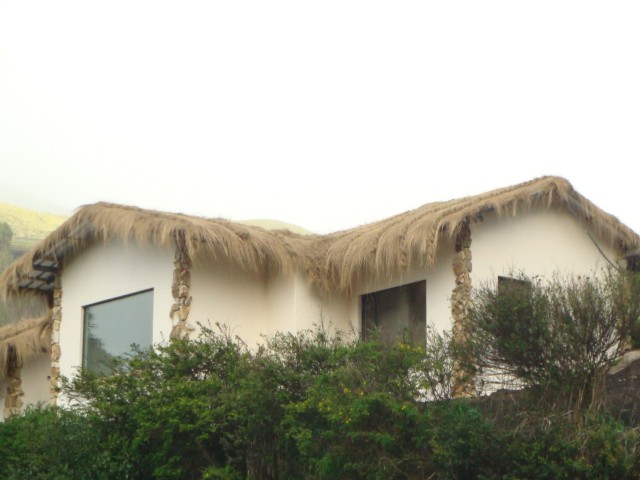

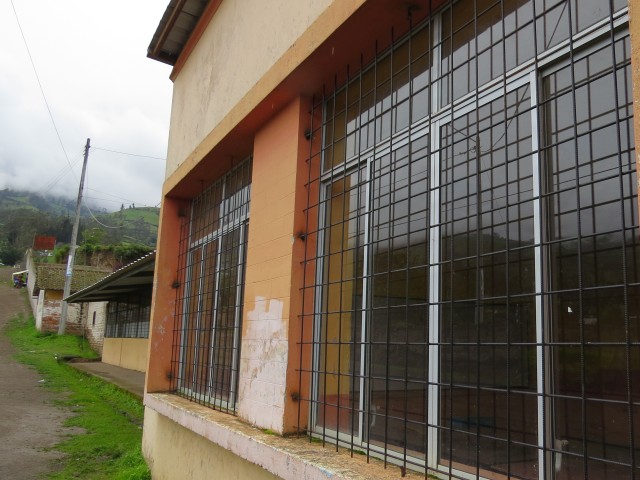
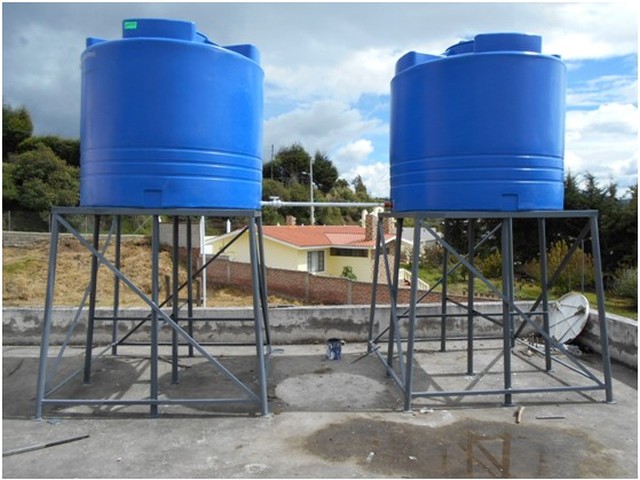
|
|
2010
|
Renovation of the WC-plant of the primary school in Guntus municipality Químiag near Riobamba.
|
|
2012 - 2016
|
Regional School in Quimiag:
Our organization financed special blackout curtains for the school hall to make it possible to use films in class. Moreover, security grilles for the protection of the windows facing the road were sponsored. The parents of the students installed these security bars in voluntary work.
|
|
2017
|
Regional School in Quimiag:
As the sanitary installations of the school suffered from extreme water shortage and the water pressure was far too low, Padre Gabriel suggested having two huge water tanks installed. The installation was completed under the direction of the hydraulic engineer Carlos Nieto. REGALO provided the financial means to solve these sanitary problems.
|
Our help is always intended as an incentive for people to help themselves, because this is the only way to ensure long-term continuity with regard to the functioning, maintenance and continuation of what has been so far achieved.
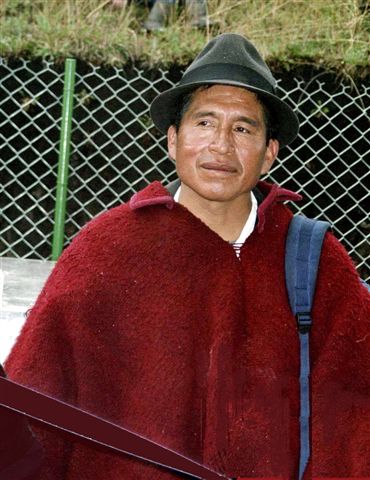 We are concentrating our efforts on those locations where the indigenous population is willing to cooperate and to make its own contribution. In particular, the villagers must, in their own interests, rethink their basic attitudes, get themselves properly organized, and replace their present often questionable economic and social structures by better ones. It is very important to REGALO that ecological awareness is developed, that the preservation of the regional fauna and flora is combined with optimal sustainable use, and that the local population is fully involved in these aspects.
We are concentrating our efforts on those locations where the indigenous population is willing to cooperate and to make its own contribution. In particular, the villagers must, in their own interests, rethink their basic attitudes, get themselves properly organized, and replace their present often questionable economic and social structures by better ones. It is very important to REGALO that ecological awareness is developed, that the preservation of the regional fauna and flora is combined with optimal sustainable use, and that the local population is fully involved in these aspects.
If an organization is to co-operate efficiently and in a sustainable manner with the indigenous population, there needs to be a link between the culture of the modern western world and the traditional culture of the area. An outstanding local resident, Roberto Caz Quillay, is hardly able to read or write, but has already done so much for his valley and his village that we are indeed proud to have him as our link to the locals. With his strong sense of justice, his sharp intellect, his environmental awareness and his quiet but extremely sensible and diplomatic approach, he has the knack of being able to inform his fellow-citizens about a subject, to motivate them, and to explain their case to us. He is the person who organizes the voluntary workers and, when there is something to be done, and not only in his own village, he is always there to lend a hand.
|













